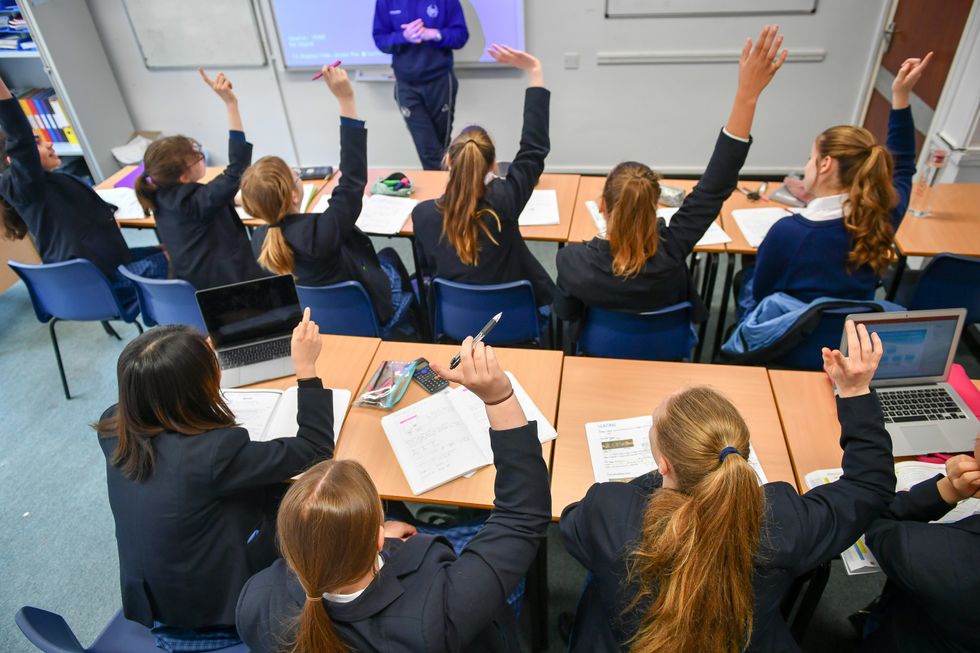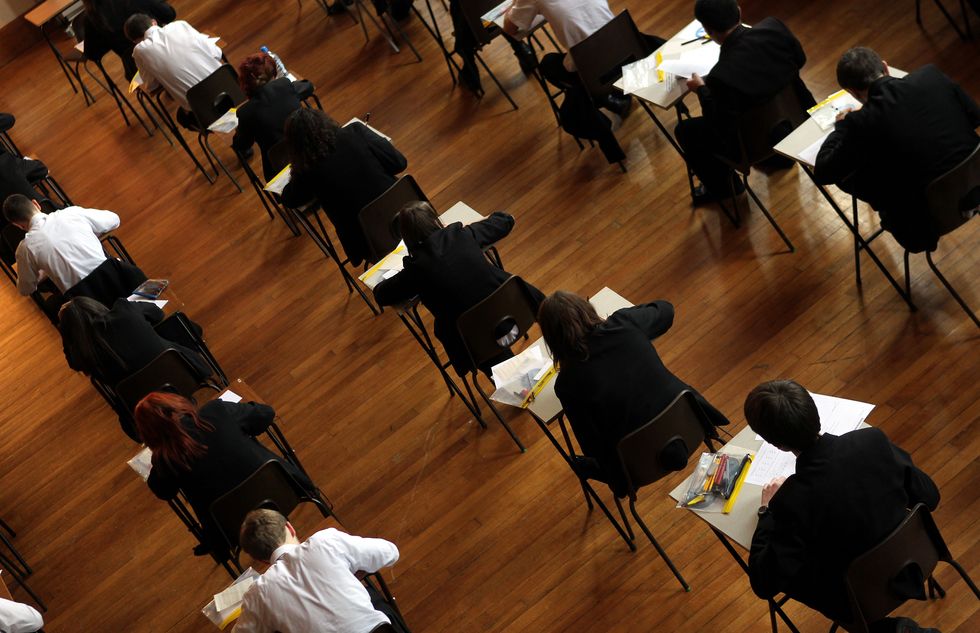



Parts of the country where disadvantaged students perform worse are more likely to have larger populations of poor white people, a report has shown.
The Institute for Government (IfG) think tank has suggested disadvantaged white students in England have "particularly poor educational outcomes".
LfG analysis has looked at the "high-impact" group of students - those for whom disadvantage disproportionately affects their performance.
The data concludes that it was made up mostly of white British students.
Local council areas sitting in the bottom fifth for performance of disadvantaged students were "disproportionately likely" to have "above-average" shares of those students from high-impact group - or from white backgrounds - the analysis found.
Education Secretary Bridget Phillipson said it was a "national disgrace" that so many working-class children were being "written off" in the education system.
Tens of thousands of students across England, Wales and Northern Ireland will get their GCSE results on Thursday.
Many of those students waiting for their results were in Year 6 when schools closed down due to the Covid pandemic.

Students at school
| PALfG's report analyses student performance at Year 6 at a local authority level to grasp local variation.
It takes into account students reaching the expected standard in reading, writing and maths.
The analyses suggests educational disadvantages had "grown wider and more pronounced" across England and among demographic groups since the pandemic.
LfG said addressing high absence rates - particularly among disadvantaged students - "will be key" to closing the gap.

Students will get their GCSE results on Thursday
| PARecent figures from the Education Department found that the number of children in England who were classed as "severely absent" - having missed at least 50 per cent of school sessions - rose to nearly 150,000 in Autumn 2024.
LfG researcher and report author Amber Dellar said the pandemic had "undone much of the last decade's progress in tackling inequalities".
"Leaving some areas and groups of children far behind," she added.
"The Government's opportunity mission is a good starting point for narrowing the gaps, but it lacks a clear vision or plan for delivering that goal in schools."
Ms Dellar said "any serious plan must focus on helping schools share what works in supporting disadvantaged pupils and reducing their high rates of absence".
Ms Phillipson said her focus is about turning around the attainment gap between white working-class pupils and their peers.
Less than a fifth - 18.6 per cent - of white British pupils eligible for free school meals achieved at least a grade 5 in their English and maths GCSE's in 2023-24. That is considered to be a "strong pass".
It is compared to 45.9 per cent of all state school students in England.
The Education Secretary said earlier this month that the students were "not well positioned to carry on with studies, to get an apprenticeship, to go on to university".
“That is why the schools White Paper we will be publishing in the autumn will set out an ambitious vision for how we can tackle this generational challenge of what many young people experience," she added.
"(It) is a national disgrace that so many young people are written off and don’t get what they need to achieve and thrive.”
An Education Department spokesman said "tackling the baked-in inequalities in our education system" will take time.
"But through our plan for change this Government is taking action against the root causes that we know are holding young people back," the spokesman added.
“We are driving high and rising standards for every child through the expert-led Curriculum and Assessment Review, new Rise teams and strengthened school accountability."
The spokesman said it came alongside "work to tackle disadvantage" which included expanding free school meals, rolling out free breakfast clubs and revitalising family services in every local council.
"But we know there is more to do, which is why we will bring about the reforms needed through our Schools White Paper later this year to create an education system where every child can thrive, regardless of their background," the spokesman concluded.
